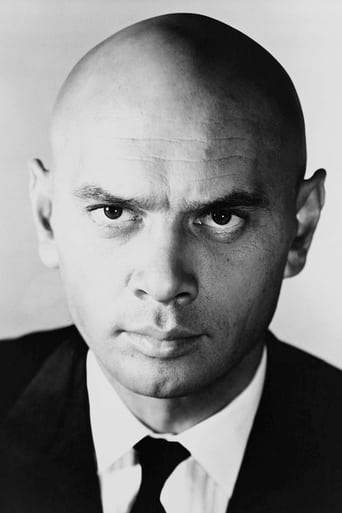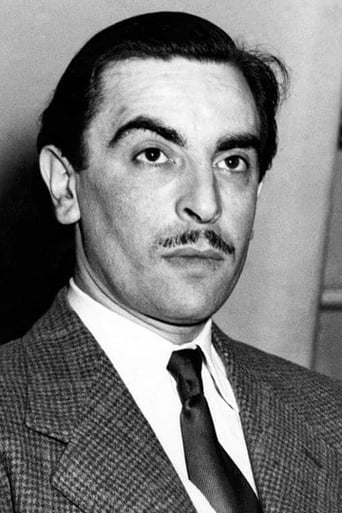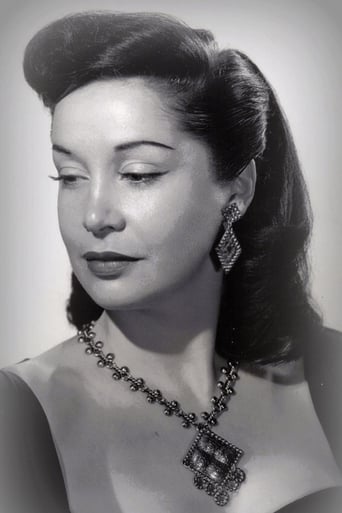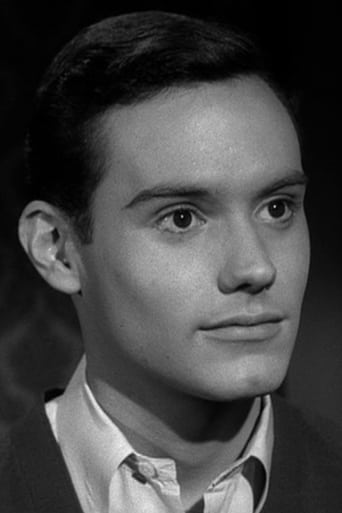caseynicholson
I'll start this review off by saying that I'm definitely not the target audience for this film, as I more or less hate musicals. Still, as a classic film enthusiast, I try to catch old movies when they come to a big screen nearby, and with this month's Turner Classic local movie being "The King and I", I decided to take in this movie.What I found in this film was a well made classic musical that features strong performances and an elaborate, no expense spared set. All of the actors, from Kerr and Bryner down to the least member of the supporting cast, appear in elaborately designed costumes and against backdrops that are magnificent. The same detail is extant in the costumes, and the level of care that went into this production is enormous. This is a very well made classic film, and it's hard to find a flaw so far as the production quality is concerned.The film's stars do steal the show, particularly Bryner who offers a convincing portrayal of an arrogant but charming oriental king. Kerr is similarly dazzling, along with the various children who make up her character's pupils.I've given this film 7/10 stars based simply around my enjoyment of the film in regard to its place in a wider spectrum of movies. Again, the production quality is outstanding, and as such there's very little that I can say that would take away from the way the movie tells its story--the exception being the rather long performance of a play within a play when the characters act out "Uncle Tom's Cabin" on stage in the film.Rather, I've given this movie 7/10 stars due to the fact that as well made as it is, it just simply didn't appeal to me enough to rank it higher. I don't regret having seen it whatsoever, but I can't imagine that this will be a movie I'd want to view more than once in my life. I did enjoy learning where the popular "Getting to Know You--Getting to Know All About You" theme song comes from. I believe it was used as an AT&T commercial jingle in the 90's. I never knew it was from this film--but now I know. Still, the score only does so much so far as making this movie re-watchable. Thus my rating of seven stars.
weezeralfalfa
Although it's a rather difficult choice to make, this is probably my favorite R&H-scored film. Like the others, it's filled with mostly memorable songs. However, the screenplay, lavish sets, quite exotic setting, cinematography, and up and down relationship between the main characters, played by Yul Brynner and Deborah Kerr, are equally important in giving it a superior rating. Based upon the historic 6 year relationship between world-traveling, widowed, Brit Anna Leonowens and Thai King Mongkut, it introduces some significant fabrications, especially as relates to the controversial last portion, when The King somehow wills his death, after a very emotion confrontation with Anna over his imminent flogging of harem girl Tuptim for her disloyalty in running away with her preferred lover. Historically, The King died suddenly of malaria, after Anna had left for Britain, she being dissatisfied with some of the terms of her employment. By then, she was no longer teaching the palace children and women, but serving as The King's secretary, as suggested in a scene where The King is dictating a letter to President Lincoln, offering to send some male war elephants to help defeat the seceding states. This scene, as many, suggests that The king regards females as grossly inferior to males. Also, he took very seriously the custom of his subjects prostrating themselves before him, never being higher than his head. This functions as a running gag, along with the too frequently repeated "etc., etc.,etc.", even being included in the King's death scene. This is in contrast to the historic King, who actually instituted some reforms, raising the status of women, although he didn't go far enough for the critical feminist Leonowens. His son and successor , Chulalongkorn, would, over a much longer reign, institute many more reforms, as minimally suggested in the finale. As suggested earlier in the film, both kings were largely motived to institute radical legal, financial and political change to discourage being taken over as a protectorate of some European power, most probably the UK. However, as I understand the meaning of the last portion of the film, The King is conflicted as to whether to enforce his traditional way of dealing with a personal crisis, which Anna labels as barbaric, or do what she recommends. The King was determined not to appear 'barbaric' to western observers, yet felt emasculated in giving into Anna's criticism of his traditional way of dealing with the crisis. Thus, he felt he had to die, and hand over his throne to his young son, who lacked his 'baggage' of a long life of traditional Thai culture, and thus presumably felt more free to institute many European-based social and political reforms. The historic Chulalongkorn was actually mid-teen, rather than the younger boy cast, when called upon to assume the throne. Although he had a regent for a few years, he felt considerably more qualified as a young king than the boy in the film, who has to initially lean on others, including Anna, in beginning to take on the role of king.Although The King periodically says that he is determined not to be considered by Europeans as a 'barbarian', in fact, Brynner, comes across as looking and often acting like a classic palace-bound pampered oriental despot, with his large harem, shaved head, bare feet, frequent menacing look with semi-oriental eyes, sometimes with defiant Mussolini-like hands on hips or arms folded across his chest posturing, frequent finger-pointing, and generally bombastic persona. That is the central irony of the screenplay! Adding to this irony, Anna periodically states that she doesn't consider him a 'barbarian'. Yet, clearly, she(as representative of a western audience) considers some of his excesses in trying to demonstrate his overpowering authority as king as symptomatic of a 'barbarian'...Of course, Brynner had plenty of practice on stage to perfect this persona. As some have pointed out, he often acts as if he is speaking to a live audience, rather than a film audience. However, this exaggerated bravado and gesticulations actually much enhances the irony of the conflict between our perception of him and his verbal statements of how he wishes to be regarded.Scottish-born Debora was quite good in her role as a school-marmish independent-minded feminist, who refuses to be squashed by The King's immense ego, but sometimes diplomatically accommodates his disapproved actions, in the hope that eventually she can change him. Their relationship rather resembles that of a marriage between two very head-strong people, who eventually divorce, after periodic threats of separation over disagreements. Although Anna clearly couldn't become one of The King's harem, just before he dies, The King gives her a valued ring to wear , in remembrance of him: thus functioning as sort of a wedding ring, in recognition of his respect for her gumption and frequent wise advice.The forbidden romance between new harem girl Tuptin(Rita Moreno) and her Burmese boyfriend Lun Tha provides a somewhat visible romance , in a story where the lead male and female clearly cannot fully express their romantic feelings toward each other. This romance also provides the impetus for the unique "Uncle Tom's Cabin" production, in a traditional Thai drama style, as well as the tragic-appearing last portion of the film. We are left perhaps wondering what became of Tuptin, after she is dragged out of the room, having learned that her boyfriend drowned himself after her recapture. Did she also commit suicide? That would have been too much sudden tragedy for the ending of a musical. Her great granddaughter claims this historic woman became one of Chulalongkorn's harem.The melody for one of my favorite songs in this film: "Getting to Know You", was a reject from the previous "South Pacific", but fits in quite well with Hammerstein's new lyrics.Perhaps I especially like this film because, as a Westerner, I am married to a SE Asian from a traditional agrarian culture and, yes, we are both quite headstrong.








